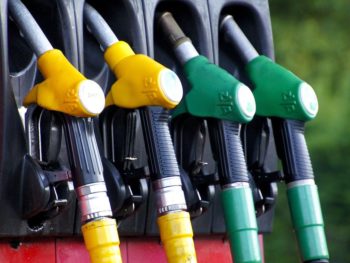The Chancellor has confirmed that fuel duty will remain at its current rate and be frozen for the next 12 months in the Spring Budget.

Jeremy Hunt told Parliament that the Treasury will maintain the current 5p a litre fuel duty cut introduced in March 2022 and keep the duty freeze – now in its 14th year – in a move to support drivers and the economy at large.
Expected to cost the Treasury £5bn a year, it’s part of a package aimed at families and smaller businesses.
The Chancellor said: “Lots of families and sole traders depend on their car. If I did nothing, fuel duty would increase by 13% this month. So instead, I’ve listened to my Right Honourable friends for Stoke-on-Trent North as well as The Sun newspaper’s ‘Keep it Down’ campaign. I have as a result decided to maintain the 5p cut and freeze fuel duty for another 12 months.
“This will save the average car driver £50 next year, bringing total savings since the 5p duty cut was introduced to around £250.”
Geotab said it was a much welcome move for the fleet sector.
David Savage, vice president, UK & Ireland, commented: “Fuel duty is one of the most significant contributors to operating costs for fleets and drivers—and against the backdrop of tightened purse strings and the broader cost of living crisis, a continuation of the freeze will be a welcome relief to the UK’s motoring and fleet community.
“Fleets are under significant pressure to optimise operating costs and drive efficiencies wherever possible—and with fuel duty typically making up around a third of the overall cost at the pump, the scheduled 5p increase for later this month only risked exacerbating these pressures further.”
Logistics UK – which had warned of the impact of any changes on the sector and across the economy – said it was a good move for the industry at a time of increasing cost pressures from rising wage and fuel costs.
Kevin Green, Logistics UK’s director of policy, commented: “Logistics powers every part of the economy, and an increase in operating costs at this time caused by the reversal of the fuel duty cut could have caused disastrous inflationary pressure on the economy. Maintaining the fuel duty cut will provide logistics businesses with more certainty as they drive the transition to a greener economy.”
The measure will also provide some relief for motorists concerned about soaring costs of driving – the RAC warned earlier this week that fuel prices had risen at their fastest rate in five months. The average cost of litre of unleaded is currently 145p, with diesel at 153p.
RAC head of policy Simon Williams said: “With a general election looming, it would have been a huge surprise for the Chancellor to tamper with the political hot potato that is fuel duty in today’s Budget. It appears the decision of if or when duty will be put back up again has been quietly passed to the next government.
“But, while it’s good news that fuel duty has been kept low, it’s unlikely drivers will be breathing a collective sigh of relief as we don’t believe they’ve fully benefited from the cut that was introduced just two years ago due to retailers upping margins to cover their ‘increased costs’. This has meant fuel prices have been higher than they would otherwise have been.
“What’s more, despite today’s positive news it’s still the case that drivers are once again enduring rising prices at the pumps, sparked by the oil price going up – the average cost of a litre is already up by more than 4p since the start of the year.”
Close Brothers Motor Finance said it was a step in the right direction, particularly for the 53% of drivers who cite fuel prices as the biggest challenge in the next 12 months.
Lisa Watson, director of sales, commented: “We’ve seen continuous hikes at the pumps over the last few months and this has added further pressure to drivers who already feel they’re faced with increased costs from all lanes, making car ownership difficult to afford for 62% of drivers. What is essential now is that this cut reaches drivers’ fuel tanks and wallets.”
But Matthew Briggs, CEO at fuel card provider Right Fuel Card, said it had hoped for a further price reduction to help motorists. It nonetheless welcomed the initiative to help keep drivers on the road.
“Whilst overall fuel prices are out of the government’s hands, we’d hope that consumers and business owners will see a more positive impact than what we’ve seen recently. We’re also keen to see more consistent pricing by retailers and less of a postcode lottery.”
And FairFuelUK said the Government had missed an opportunity to get disaffected Tory voters back by cutting fuel duty further.
Howard Cox, founder of the campaign group, said: “The 20% VAT rate was cut for six months to 15% in 2020, so why not cut fuel duty by 20p till the general election, to see the positive impact on jobs, GDP, inflation, business investment, and growth taxes? If it doesn’t work, then the experiment has at least been tried. But deep down every Tory knows, it will work.”

